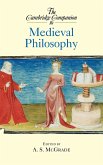Short description/annotation
A selection of texts by the most celebrated philosophers of the classical period of Islam.
Main description
Philosophy in the Islamic world emerged in the ninth century and continued to flourish into the fourteenth century. It was strongly influenced by Greek thought, but Islamic philosophers also developed an original philosophical culture of their own, which had a considerable impact on the subsequent course of Western philosophy. This volume offers new translations of philosophical writings by Farabi, Ibn Sina (Avicenna), Ghazali, Ibn Tufayl, and Ibn Rushd (Averroes). All of the texts presented here were very influential and invite comparison with later works in the Western tradition. They focus on metaphysics and epistemology but also contribute to broader debates concerning the conception of God, the nature of religion, the place of humanity in the universe, and the limits of human reason. A historical and philosophical introduction sets the writings in context and traces their preoccupations and their achievement.
Table of contents:
Farabi, The Book of Letters; Ibn Sina, On the Soul; Ghazali, The Rescuer from Error; Ibn Tufayl, Hayy bi Yaqzan; Ibn Rushd, The Incoherence of the Incoherence.
Hinweis: Dieser Artikel kann nur an eine deutsche Lieferadresse ausgeliefert werden.
A selection of texts by the most celebrated philosophers of the classical period of Islam.
Main description
Philosophy in the Islamic world emerged in the ninth century and continued to flourish into the fourteenth century. It was strongly influenced by Greek thought, but Islamic philosophers also developed an original philosophical culture of their own, which had a considerable impact on the subsequent course of Western philosophy. This volume offers new translations of philosophical writings by Farabi, Ibn Sina (Avicenna), Ghazali, Ibn Tufayl, and Ibn Rushd (Averroes). All of the texts presented here were very influential and invite comparison with later works in the Western tradition. They focus on metaphysics and epistemology but also contribute to broader debates concerning the conception of God, the nature of religion, the place of humanity in the universe, and the limits of human reason. A historical and philosophical introduction sets the writings in context and traces their preoccupations and their achievement.
Table of contents:
Farabi, The Book of Letters; Ibn Sina, On the Soul; Ghazali, The Rescuer from Error; Ibn Tufayl, Hayy bi Yaqzan; Ibn Rushd, The Incoherence of the Incoherence.
Hinweis: Dieser Artikel kann nur an eine deutsche Lieferadresse ausgeliefert werden.








